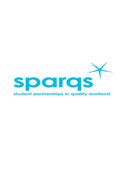We use the term 'concern' to mean a serious issue about how HEIs manage their academic standards, the quality of learning opportunities and/or the information that they make available about their provision.
Where there is the potential for the matter raised to be systemic, the person raising the concern will be notified and the matter will proceed to a Concern Assessment. The purpose of the Concern Assessment is to determine the action that will be taken.
The aim of the Scottish Quality Concerns Scheme is to promote public confidence in the Scottish university sector by offering a responsive means for exploring concerns brought to QAA Scotland's attention outside the regular review arrangements.

